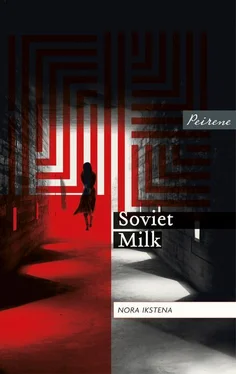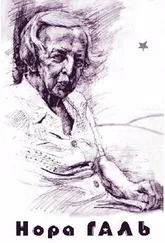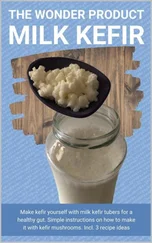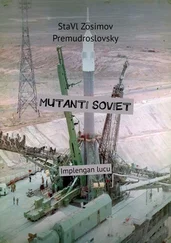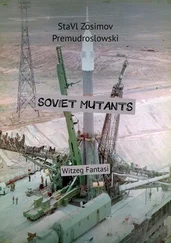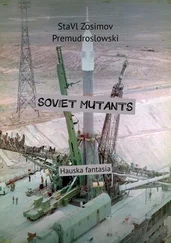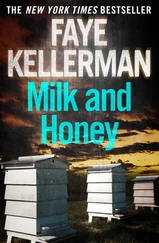I didn’t understand this teacher’s dedication. Encouraged by her, her son had put himself in harm’s way. But I didn’t have to understand anything. I had only to heed what constituted duty to our great motherland, and to have the courage characteristic of a responsible Soviet citizen.
I gazed out of the window and the teacher’s words passed me by. On the other side of the street, the tall chestnut trees had burst into leaf. Soon the trees would be in blossom. I would leave the city, run through fields, swim, sit for hours on the riverbank, encourage my mother to go for walks, and we wouldn’t go to bed until late in the warm evenings. I would drag my mother out of her lair littered with books, ashtrays, apple cores and coffee mugs, and we’d pick the first chanterelles in the woods. I would read all that Teacher Blūms had recommended. I’d read all that was on my mother’s bookshelves. I would read to spite the man with the evil eyes, to spite the headmistress and my other eleven classmates who had denounced Teacher Blūms, to spite myself for denouncing him too because I was intimidated. I hated my fear. The summer seemed like a liberation from what felt like a young offenders’ institution. I only had two more years of it to endure.
‘I am proud of my son.’ The teacher’s words called me back to the class.
Two weeks later, when the chestnut trees were almost in blossom, tragic news ran through our school. Our form teacher’s son, the doctor, had been killed in Chernobyl. She walked around dressed in black with a black ribbon tied in her hair. Everyone expressed their sympathy to her. She had to wait for a zinc coffin to bring her son back from his duty abroad, which she had encouraged him to fulfil.
In her sorrow she became even harsher. Although it was almost the end of the year, she harangued us with new history to learn, adding more and more homework and tests.
While we were doing the tests, she would disappear into her office. Her muffled sobs could be heard through the wall. We hunched over our notebooks so that we wouldn’t have to look at each other. Towards the end of the hour, having dried her eyes, she would come back into the classroom. She would bark, ‘I am proud of my son. He fulfilled his duty.’
I saw how a cage had materialized around her, how she had shrunk and mutated into a hamster devouring its child. It was so real and horrifying an image that I felt sick. There was a numb silence in the classroom.
The summer didn’t bring the liberation I had anticipated. The day before I was to leave, Jesse appeared at our front door in a state of near collapse. She stammered, ‘Your mother is alive. They transferred her to the big new hospital right here in the suburbs.’
‘Jesse, what happened?’
We sat her in the kitchen and made her drink my grandmother’s tea. Soon she was able to tell us what had happened.
After my last visit, my mother had withdrawn completely. She hadn’t even gone to the ambulatory centre for the paltry two days a week she was still meant to work. ‘I really don’t know,’ Jesse said, ‘but I think she was let go from her work.’ When it got dark, she had sat outside, gazing at the sky. Jesse had tried to talk to her without success. All she got was broken phrases, answers for the sake of answering.
Jesse had tried to cheer her up: ‘Summer’s coming, and all three of us will be here together. Everything will be OK.’ My mother had turned to Jesse, looked at her in a funny way and said, ‘Yes Jesse, yes. Everything will be OK. We are all only human.’ And my mother had gazed upwards again, into the darkness.
On the evening of that day, Jesse had come by after work to make dinner. The door to my mother’s room had been closed. Jesse had knocked, but my mother didn’t answer. Jesse had sensed that something was terribly amiss. She had knocked more persistently, but still nothing. The door was locked simply with a small latch. Jesse had managed to get it open.
‘My God,’ Jesse said. ‘She was lying there with her eyes open, her pupils dilated, her hands groping at the air around her. Scattered beside her lay two packets of pills – she had swallowed the contents of both.’
My grandmother bent her head. ‘The road to hell,’ she repeated, ‘the road to hell.’
Jesse continued. She was allowed to go along with my mother, who had nearly died in the ambulance on the way to the hospital. Her stomach had been pumped out. Now she was still in intensive care but her condition had stabilized. Jesse was not allowed to see her, but they would let in a daughter or her mother.
Jesse talked for about twenty minutes. But to me it felt like twenty years of talking, and those years went by right here in our kitchen, where outside the dandelions were already blooming in the yard and soon the lilacs would join them. My grandparents would sit beneath those lilacs, happy once more to feel the first spring warmth. And toddlers might play in a sandpit at their feet, and the birds would take sand baths. But I had no time for that spring. I had to grow up fast, faster than the words flowing from Jesse’s mouth. And I had to be brave to hear out her story.
‘Jesse, stay the night with us. Take a bath, rest,’ I said.
‘Yes,’ my grandmother agreed weakly. ‘Jesse, stay with us.’
‘I will try to go and see her tonight. First I must phone the hospital.’
‘Sweet Pea, you won’t go alone, will you?’ my grandmother asked.
‘I will go, and I must go alone.’
At the end of Lenin Street, the tram turned off towards a pine forest. It was half-empty. I sat at a window. Everything my grandmother had given me to take along lay in my lap: a toothbrush, toothpaste, slippers, a dressing gown, a hairbrush, soap, underwear, warm socks. Beyond the window, in the woods, bushes were sporting their first spring green – so bright they dazzled me. Near the hospital some old ladies were selling spring flowers.
It was the busiest visiting hour. People were hurrying over the stone slabs of the hospital entrance hall, to bring their loved ones home-cooked food, flowers and life’s necessities.
The doctor on duty in intensive care listened to me attentively. He set my passport next to my mother’s.
‘You’re very young,’ he said. ‘Are you sure you want to see her now?’
‘Yes,’ I answered.
I followed the doctor down never-ending corridors. It felt as if we were descending deeper and deeper into the underworld. At last the sign ‘Intensive Care’ appeared in blue lights.
‘She’s not conscious. Poisoning one’s system with pills is life-threatening,’ the doctor said as he opened the door to the ward.
My mother lay in bed naked to her waist. Adhesive patches stuck to her chest were connected to tubes which in turn led to various pieces of medical equipment. On a nearby monitor the line of her heartbeat zigzagged.
I smoothed my mother’s hair. It was matted as always. I stroked her ear, her neck and chest. She was warm. Warm and quiet, she slept, transmitting her life signal to the metal box.
After a while, the doctor came in.
‘I think we’ll pull her through,’ he said. ‘You too must help to call her back.’
Three days later, my mother regained consciousness. She was transferred to the regular ward. My grandmother and I sat on either side of her, while my step-grandfather waited outside on a bench so that my mother would not get too emotional during this first encounter. She ate a couple of spoonfuls of our broth, closed her eyes, andsaid just these few words: ‘It’s a pity.’
My grandmother had a long talk with the doctor. Their decision had been made. They were ready to transfer my mother to the psychiatric hospital, where she would have to stay for at least a month under medical supervision. She would have to be medicated.
Читать дальше
